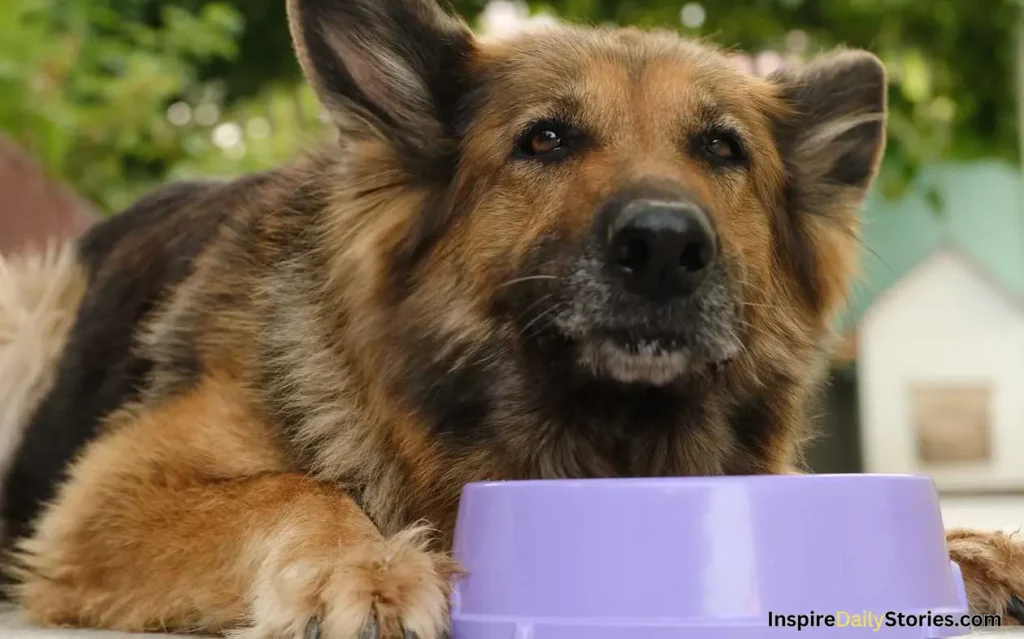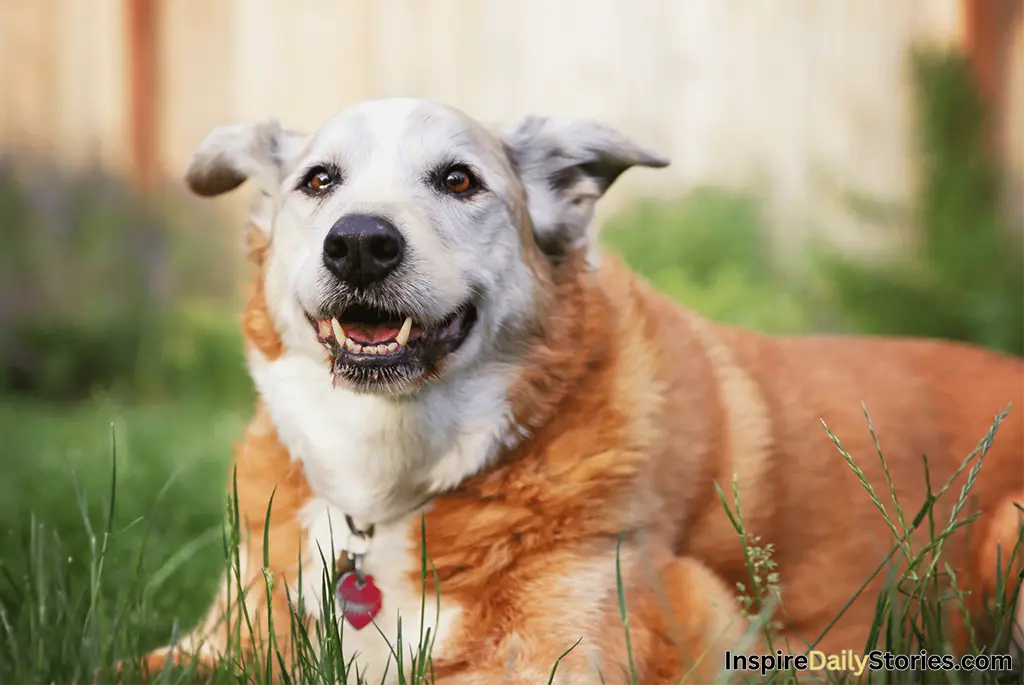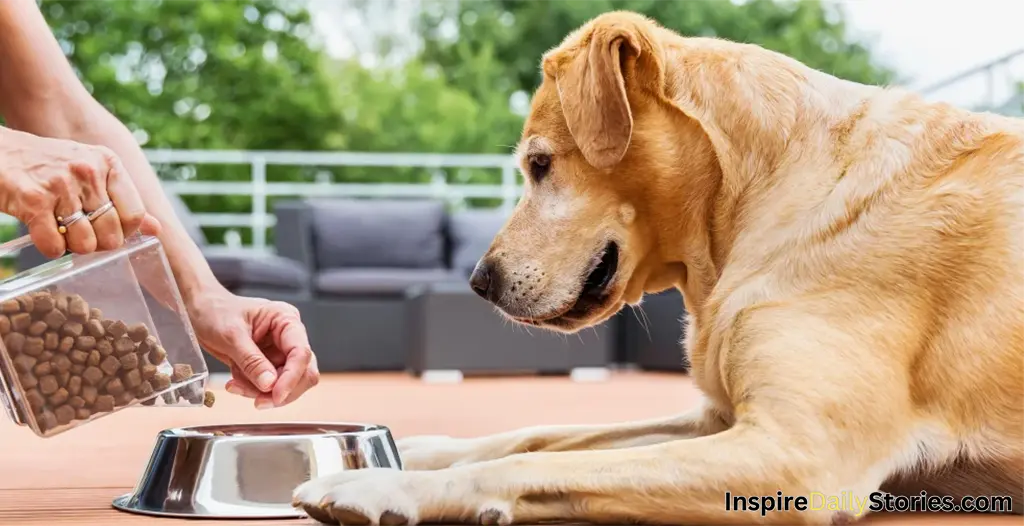Are You Providing the Best Nutrition for Your Senior Dog?

Introduction
A. Brief overview of the importance of nutrition for senior dogs:
Nutrition is super important for older doggies. Just like how good food helps humans stay healthy, it’s crucial for our furry friends too. As dogs get older, their bodies change, so they need special nutrients to keep them feeling great.
B. Introduction to the key factors to consider for senior dog nutrition:
When it comes to feeding older dogs, there’s a lot to think about. Their age, size, and any health issues they might have all play a big role. Plus, their diet needs might be different from when they were young pups.
C. Transition to the main body of the article:
Now that we know how important nutrition is for senior dogs and what factors to think about, let’s dive into the details. We’ll explore what kind of food is best for them, how much they should eat, and other important stuff to keep our older furry pals healthy and happy.

Understanding Senior Dog Nutrition
A. Explanation of how nutritional needs change with age in dogs:
As dogs get older, their bodies change, just like ours do. This means their food needs to change too. They might need different kinds of nutrients to stay healthy and happy.
B. Discussion on specific nutrient requirements for senior dogs:
- Protein: Protein is like the building blocks for muscles and energy. Senior dogs need a good amount of protein to keep them strong and active.
- Fat: Fat is like fuel for their bodies. It gives them the energy to run and play. Older dogs might need a bit less fat than when they were younger.
- Carbohydrates: Carbs are like the main source of energy. They give dogs the power to chase after their favorite toys. Senior dogs still need carbs, but maybe not as much as when they were pups.
- Vitamins and minerals: These are like the tiny helpers that keep everything running smoothly. Senior dogs might need more vitamins and minerals to keep their bodies in tip-top shape.
C. Addressing common misconceptions about senior dog nutrition:
Sometimes, people think older dogs should eat less or only certain kinds of food. But that’s not always true. Every dog is different, and what’s most important is making sure they get all the right nutrients they need to stay healthy and happy in their golden years.

Assessing Your Senior Dog’s Nutritional Needs
A. Importance of consulting with a veterinarian for tailored advice:
Your senior dog is unique, just like you! It’s super important to talk to a vet who knows all about your furry friend’s health. They can give you personalized advice on what food is best for them.
B. Factors influencing a senior dog’s nutritional requirements:
- Breed: Different dog breeds have different needs. Some might need more food to stay healthy, while others might need less. It’s important to know what works best for your senior dog’s breed.
- Size: Big or small, size matters when it comes to food! Bigger dogs might need more to eat, while smaller ones might need less. Paying attention to their size helps you figure out the right amount of food for them.
- Weight: Just like humans, dogs can be different weights too. If your senior dog is a bit chunky, they might need less food to slim down. If they’re on the skinny side, they might need a bit more to fill them up.
- Health conditions: Sometimes, our furry pals have health issues that affect what they can eat. Things like diabetes or allergies might mean they need a special diet. Knowing about any health conditions helps you pick the perfect food for them.
C. Methods for assessing a senior dog’s current diet and nutritional status:
Checking out what your senior dog eats now and how they’re doing is like being a detective! You can look at their poop (yes, really!), their energy levels, and even their coat to see if they’re getting all the right nutrients. If something seems off, it might be time to switch up their food or talk to the vet for advice.

Choosing the Right Senior Dog Food
A. Overview of different types of senior dog food available:
Senior dog food comes in different forms, just like human food! There’s dry kibble, which is like crunchy nuggets, wet food, which is like yummy stew, and even raw diets, which are like the caveman diet for dogs.
B. Key considerations when selecting a senior dog food:
- Nutritional adequacy: This means making sure the food has all the right stuff your senior dog needs to stay healthy and strong.
- Quality of ingredients: Good ingredients mean good food! Look for foods with real meat and veggies, not a bunch of mystery ingredients.
- Digestibility: Fancy word, but it just means how easy it is for your dog’s tummy to handle the food. You want something that won’t upset their belly.
- Special dietary needs (e.g., joint health, weight management): Sometimes, our older pals need a little extra help. Foods that support things like joint health or help them stay at a healthy weight can make a big difference in how they feel.
C. Discussion on homemade diets versus commercial options:
Some people like to cook for their dogs at home, while others prefer to buy food from the store. Both can be good options! Homemade diets let you control exactly what goes into your dog’s food, but it’s important to make sure they’re getting all the nutrients they need. Commercial options are convenient and often balanced, but you have to make sure you’re picking a good quality one. It’s about discovering what’s most effective for you and your beloved pet!

Implementing a Senior Dog Nutrition Plan
A. Importance of gradual dietary transitions for senior dogs:
Imagine if someone suddenly changed all your food overnight – you’d probably feel pretty yucky, right? Well, the same goes for senior dogs! It’s important to switch their food slowly so their tummies have time to adjust.
B. Strategies for monitoring a senior dog’s response to a new diet:
Just like how you check yourself out in the mirror after a new haircut, it’s essential to keep an eye on your senior dog after changing their food. Look out for things like changes in their poop, energy levels, or coat. If anything seems off, it might be time to talk to the vet.
C. Incorporating supplements, if necessary, into a senior dog’s nutrition plan:
Occasionally, our furry companions require an additional boost! Supplements are like vitamins for dogs. They can help with things like joint health or shiny coats. But it’s important to talk to the vet first to make sure the supplements are safe and won’t interact with any other medications your senior dog might be taking.
Special Considerations for Senior Dogs
A. Addressing dental health challenges in senior dogs:
Just like us, senior dogs can have dental problems. Imagine trying to eat with a sore tooth – not fun! It’s important to take care of their teeth by giving them dental treats and getting regular check-ups from the vet.
B. Managing weight and preventing obesity in senior dogs:
Carrying around extra weight can be tough on a senior dog’s body, just like it is for us. Keeping them at a healthy weight means they can move around more easily and feel better overall. It’s all about giving them the right amount of food and making sure they get enough exercise.
C. Tailoring nutrition to address common health issues in senior dogs (e.g., arthritis, kidney disease):
As dogs get older, they might start to deal with health issues like arthritis or kidney problems. But don’t worry, there are special foods that can help! These foods have things like extra joint support or lower levels of certain nutrients to help keep your senior dog feeling their best. Just like how we might need medicine for certain health problems, senior dogs might need special food to help them stay healthy too.
Conclusion
A. Summary of the main points covered in the article:
We’ve covered a lot of ground in this article about senior dog nutrition. From understanding their changing needs to choosing the right food and considering special health issues, there’s a lot to think about when it comes to keeping our older furry pals healthy and happy.
B. Encouragement for dog owners to prioritize their senior dog’s nutrition for a healthier and happier life:
Our senior dogs have been with us through thick and thin, and now it’s our turn to take care of them! By giving them the best nutrition possible, we can help them live their best lives in their golden years. So let’s make sure they get the good stuff they need to stay strong and playful.
C. Final thoughts on the importance of regular veterinary check-ups and ongoing dietary adjustments for senior dogs:
Just like how we go to the doctor for check-ups, our senior dogs need regular visits to the vet too. It’s important to keep an eye on their health and make any necessary adjustments to their diet as they age. With proper care and attention, we can ensure our senior dogs stay healthy and happy for years to come.
People also ask
What’s the ideal food for an older dog?
Look for high-quality senior dog food with balanced nutrients and ingredients like real meat.
What are the nutritional requirements for senior dogs?
Senior dogs need less fat and fewer calories but more fiber, vitamins, and minerals.
Do I need to feed my senior dog senior dog food?
It’s recommended because senior dog food is specially formulated to meet their changing needs.
Do senior dogs need less protein?
No, senior dogs still need protein to maintain muscle mass and overall health.
Is high protein good for older dogs?
Yes, but in moderate amounts; it helps maintain muscle strength and supports their immune system.
At what age is a dog considered a senior?
Usually around 7 to 10 years old, depending on the breed and size.



